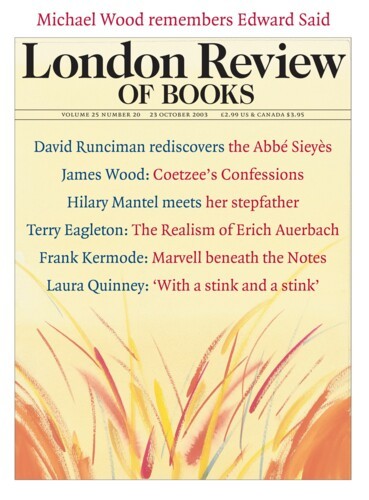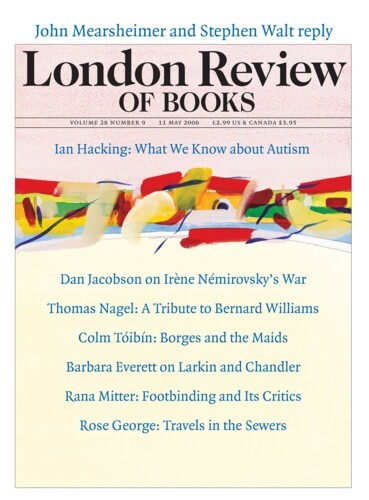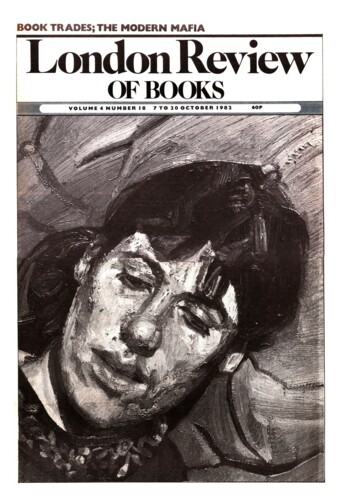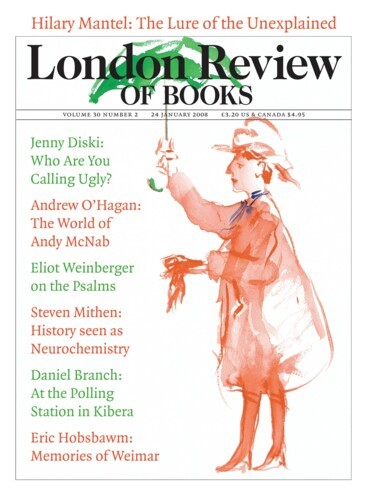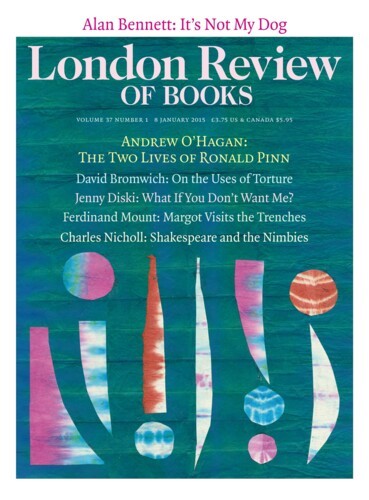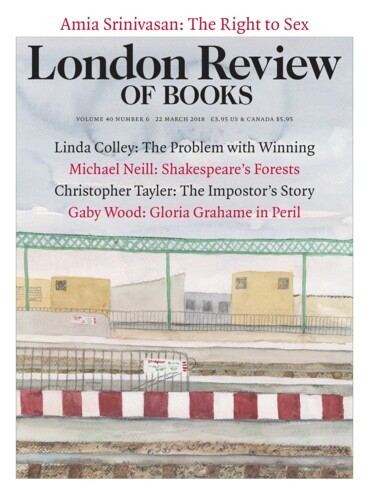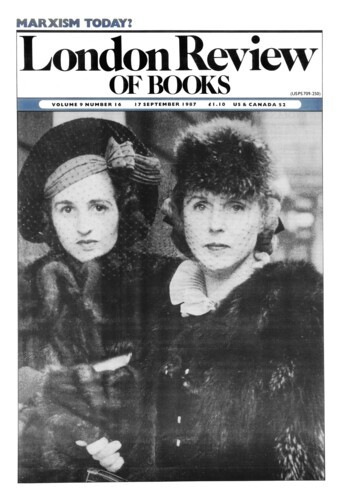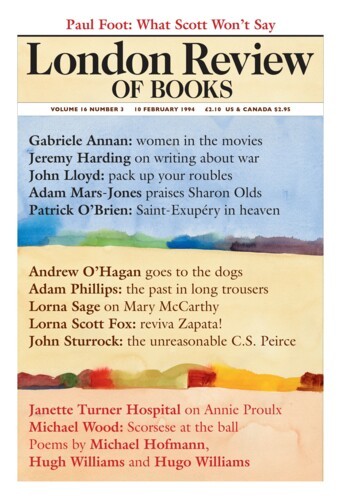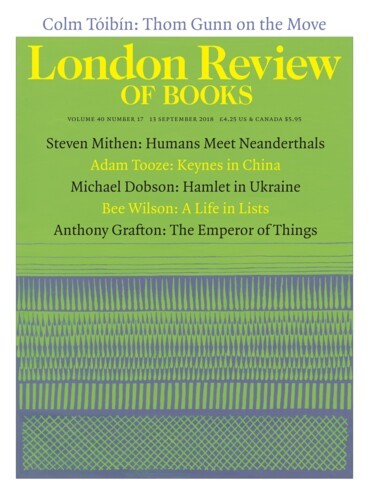Diary: Hilary Mantel meets her stepfather
Hilary Mantel, 23 October 2003
Let us say, life changes at a glance. Let us say you’re walking forward, you turn your head to look over your shoulder, and behind you the landscape has changed. One life, a life you might have led, is snatched back into the shadows. A different life begins. This is the day I meet my stepfather; it is the day he meets me.
